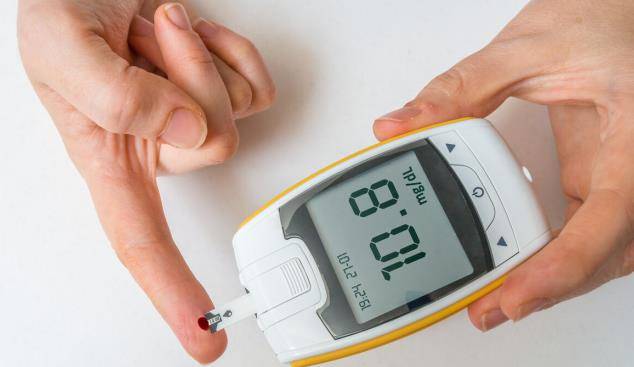Lily, 37 years old, fainted and was taken to the hospital a few days ago. She was admitted to the ICU and her life was temporarily saved after rescue.
During the blood test, it was found that Lily’s blood had turned milky white, eventually diagnosed as
Ketoacidosis, with blood sugar levels also exceeding the standard.
Although she has been out of danger after rescue, she will need long-term dependence on insulin in the future.
It is understood that Lily has significant dietary problems in her daily life, often drinking milk tea and carbonated drinks, which are just one of the factors that trigger high blood sugar.
High blood sugar mainly refers to excessive sugar content in the body’s organs, blood, and tissues. In the short term, high blood sugar is generally related to diet.
In a normal fasting state, the blood sugar level is about 3.9-6.1 mmol/L, and after eating, the body’s blood sugar level will also slightly increase.
If you notice that your blood sugar index is persistently high, it is very likely due to conditions such as diabetes and chronic pancreatitis.
In 2020, a survey was conducted on diabetes patients, with a high diabetes rate of 12.8% in China, totaling over 100 million people. China has become the country with the highest number of diabetes patients globally.
The “Blood Sugar King” in the food world has been revealed, advising you to eat less of it as much as possible.
The harm to the body after an increase in blood sugar levels is significant, so it must be taken seriously to stabilize blood sugar.
In addition, attention should also be paid to diet. Regular consumption of unhealthy foods can easily lead to elevated blood sugar levels, posing a threat to health.
Food 1: High-calorie foods
In daily life, there are many high-calorie foods, such as milk tea, fried chicken, etc. These foods are not recommended for diabetes patients to consume frequently because they contain a large amount of sugar. Regular consumption can lead to elevated blood sugar levels and accelerate the onset of diabetes.
In addition, foods like chocolate and cakes also have high calories. Overconsumption can increase the body’s fat content, leading to a rise in blood sugar concentration.
Food 2: Staple foods
Diabetes patients are also not recommended to eat staple foods frequently, especially rice. Consumption of rice can lead to increased blood sugar levels, posing risks to vascular health.
Moreover, foods like potatoes, vermicelli, and sweet potatoes have high starch content. After consumption, the digestion in the stomach and intestines is rapid, resulting in a rapid increase in blood sugar levels. It is recommended to mainly consume coarse grains and cereals, paired with stable blood sugar vegetables and fruits.
Food 3: Dried fruit foods
Dried fruit foods are common, such as almonds, walnuts, nuts, and peanuts. These foods are relatively high in fat, and excess fat in the body will be converted into fat deposits when exceeded. This accumulation of body fat will lead to an increase in body weight, which in turn burdens the pancreas and affects stable blood sugar levels.
Therefore, it is recommended to consume dried fruits less frequently in daily life to effectively reduce the occurrence of diabetes.
Stabilizing blood sugar and cultivating good lifestyle habits are crucial.
Firstly, early to bed and early to rise.
To stabilize blood sugar, it is recommended to develop the habit of going to bed and waking up early, which can to some extent stabilize blood sugar and preserve health.
Staying up after 23:00 at night is called staying up late, which can affect hormone synthesis in the body and disrupt insulin, leading to the early onset of diabetes.
Prepare to rest by 10:00 pm every night, cultivate good sleep habits, and believe that blood sugar will gradually stabilize.
Secondly, drink more water.
Drinking water regularly has many benefits for the body. It can satisfy the body’s basic needs and dilute the blood sugar content, maintaining overall health.
Soaking certain ingredients in water is helpful in stabilizing blood sugar. The components in chrysanthemum tea with snow ear help stabilize blood sugar, such as flavonoids, selenium, and cordycepin.
Flavonoids can promote insulin secretion, help stabilize blood sugar, and protect vascular health;
Cordycepin can accelerate fat decomposition, reduce fat content, inhibit excessive fat accumulation in the body, and help stabilize the endocrine and nervous systems;
Amino acids can stabilize blood sugar, reduce blood sugar content, and aid in repairing damaged pancreatic B cells.
Soaking and consuming in warm water can meet the body’s needs.
Maintain a good mood.
Having a good mood is beneficial for stabilizing blood sugar. Prolonged feelings of depression or anger can increase the risk of diabetes.
Clinical investigations have found that 30% to 50% of diabetes patients have emotional barriers. Moreover, anger can cause vascular damage, affecting vascular health.
In daily life, participating in more social activities can help expand social circles, such as group travel, public speaking, and dancing.


